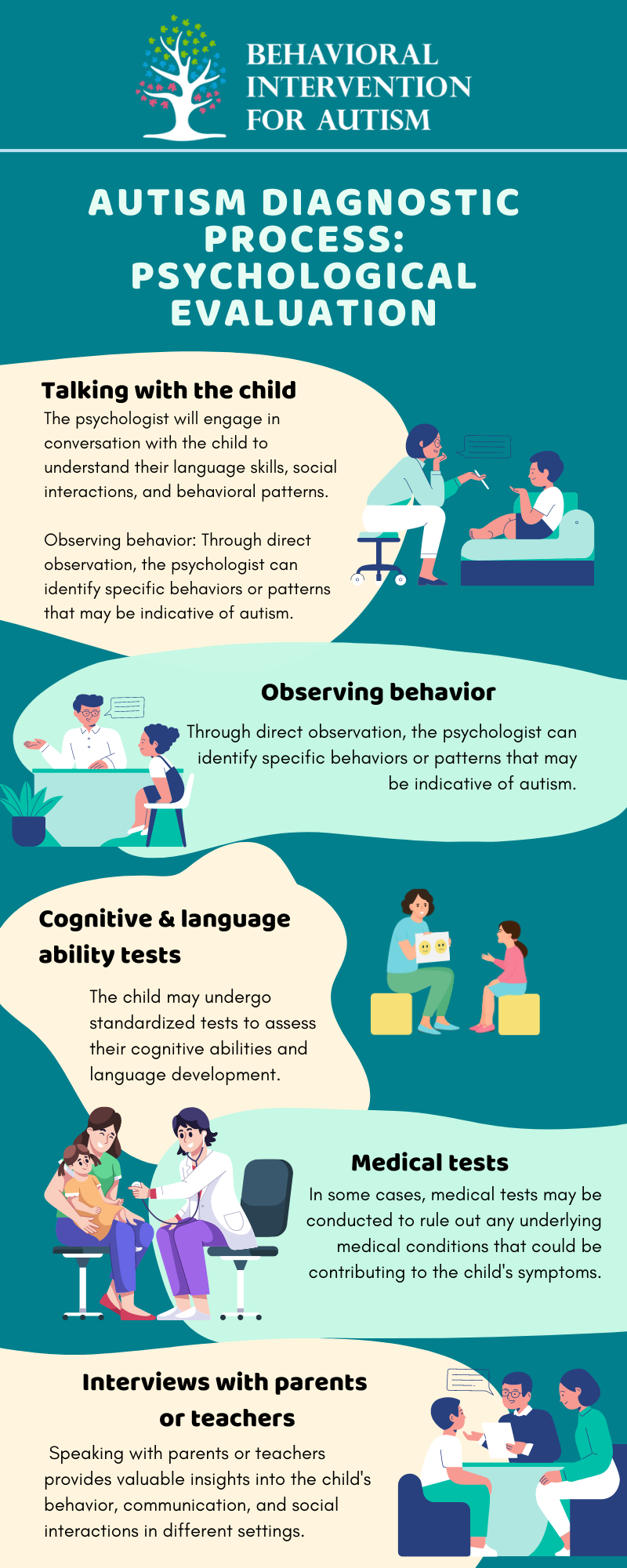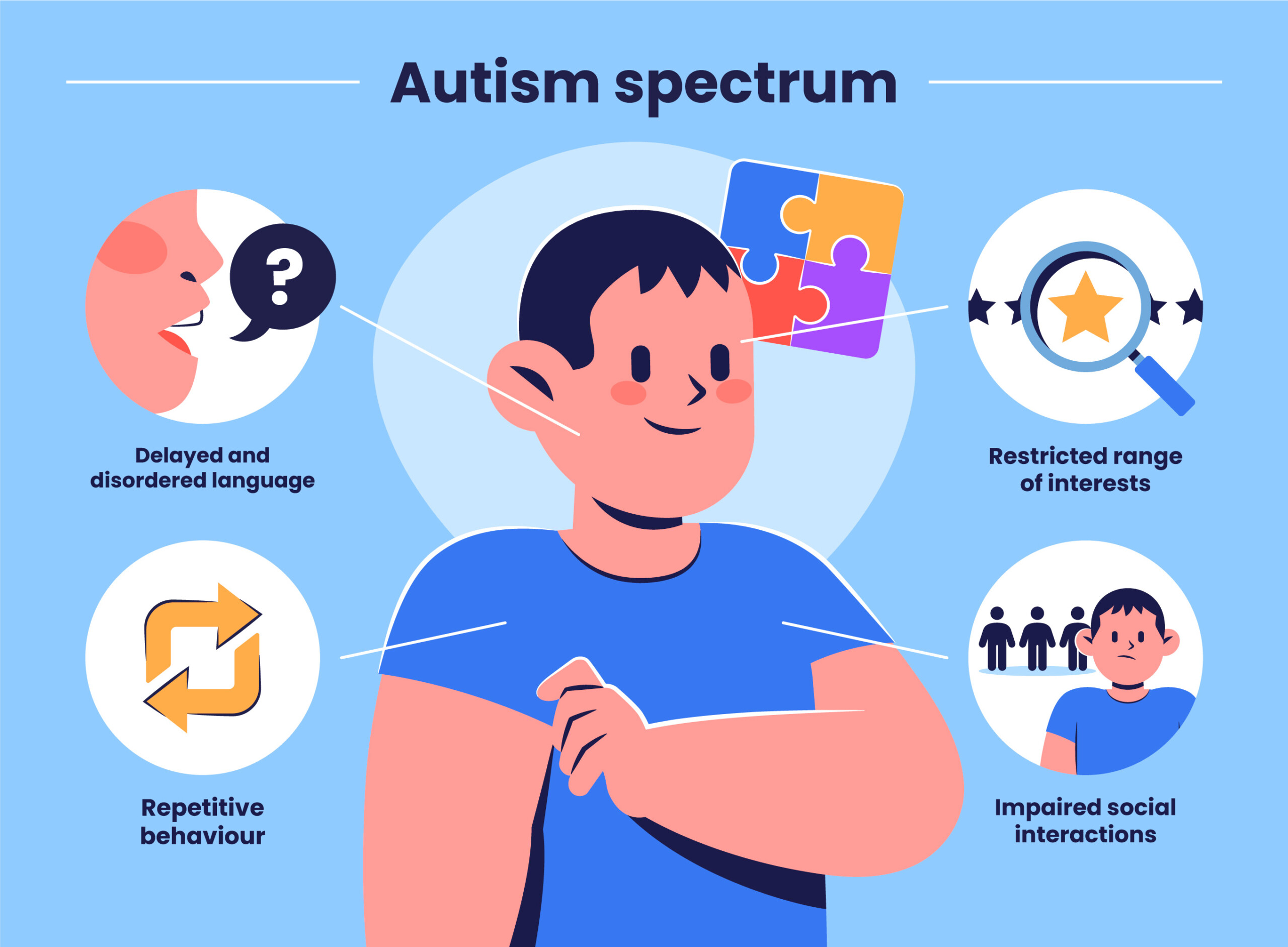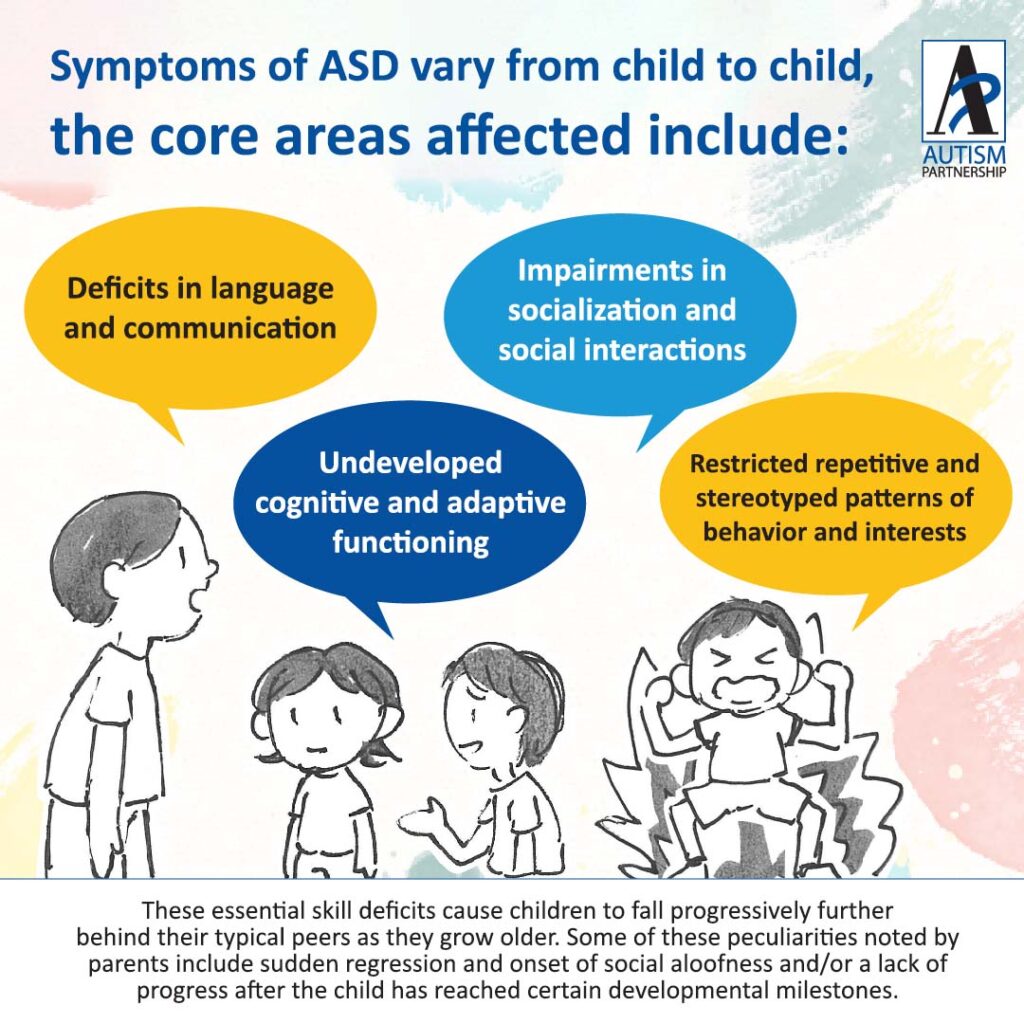Best practices for building sensory-friendly spaces with advice from an Autism Therapist
Best practices for building sensory-friendly spaces with advice from an Autism Therapist
Blog Article
Key Signs and Signs And Symptoms to Identify in Individuals With Behavior Autism
When you experience somebody with behavior autism, acknowledging key signs and signs and symptoms is vital. You might see difficulties in social communications and interaction, along with a strong need for routines. In addition, sensory sensitivities can lead to frustrating experiences. Understanding these qualities can enhance your support and interventions, but there's even more to uncover regarding exactly how these actions show up in day-to-day situations. Let's explore what these indications truly appear like.
Challenges in Social Communications
When you communicate with somebody on the autism spectrum, you could notice they battle with social cues and communication. These challenges can make social communications feel overwhelming for them.
Additionally, you may discover that they favor routines and familiar settings, which can restrict their willingness to take part in brand-new social scenarios. When they do involve, they may discuss their interests in great detail without noticing if you're interested. This can lead to prejudiced discussions that leave you really feeling detached. Understanding these obstacles can assist you approach communications with empathy and patience, fostering a more comfy environment for both of you.
Difficulty With Verbal and Non-Verbal Interaction

Identifying these indications is necessary, as it helps you far better support and involve with individuals on the autism spectrum. By recognizing their interaction difficulties, you can cultivate extra purposeful links and supply a more supportive setting.
Repetitive Behaviors and Regimens
Interaction obstacles commonly accompany various other signs of autism, such as repetitive habits and a solid preference for routines. You may observe that individuals with autism frequently participate in particular, repeated actions, like hand-flapping, shaking, or duplicating expressions. These behaviors can supply convenience and a sense of control in a commonly overwhelming world.
When they follow an organized timetable,Routines are just as crucial; many people prosper. You may discover that changes to these regimens can cause substantial distress. If they have a daily ritual of eating breakfast at a particular time or following a specific course to school, any kind of disruption can trigger anxiety.
Identifying these patterns assists you comprehend their habits and offer support. By fitting their demand for regular and enabling repetitive actions, you can produce a more comfortable environment that reduces their difficulties.
Sensory Sensitivities

Typical Sensory Triggers
Sensory sensitivities can significantly influence day-to-day life for individuals with autism, as specific stimulations usually set off frustrating reactions. Typical sensory triggers consist of loud sounds, brilliant lights, and solid smells. You may see that sudden noises, like alarm systems or alarms, cause stress and anxiety or distress. Fluorescent lights in stores can feel uneasy and rough. Structures can likewise play a significant function; harsh textiles or particular food textures may be intolerable for you. Furthermore, crowded locations can bewilder your detects, making it tough to concentrate or relax. Comprehending these triggers can help you manage your environment better. By knowing what impacts you, you can take actions to lessen pain and boost your day-to-day experiences.
Behavior Feedbacks Clarified
Recognizing your behavior actions to sensory sensitivities is vital, as they typically expose how you interact with the globe. You could observe that specific noises, lights, or structures overwhelm you, bring about anxiety or discomfort. When confronted with these stimulations, you could withdraw, cover your ears, or perhaps respond strongly. These responses aren't simply peculiarities; they're your way of handling overstimulation. You might also locate yourself seeking details sensory experiences, like deep pressure or silent atmospheres, to help ground on your own. Acknowledging these patterns helps you recognize your needs far better and can assist how you connect them to others. By acknowledging your sensory level of sensitivities, you can work in the direction of producing a setting that feels more comfy and manageable for you.
Coping Techniques Review
Recognizing your sensory level of sensitivities is simply the initial step; currently it's time to discover coping strategies that can assist you take care of those experiences effectively. Begin by producing a sensory toolkit customized to your needs. This could include noise-canceling earphones, fidget playthings, or calming scents. Developing an organized regimen can also offer predictability, minimizing anxiousness around sensory overload. When you feel overwhelmed, take breaks in a quiet area to collect yourself. Exercising mindfulness techniques like deep breathing can help ground you in the moment. Additionally, communicate your requirements with those around you; having helpful family and friends can make a substantial distinction. Keep in mind, discovering what functions finest for you may take some time, so be patient and open to trying new methods.
Limited Passions and Focus
While numerous individuals create a variety of interests, those with autism frequently demonstrate limited rate of interests and an intense concentrate on certain topics. You could observe that somebody with autism can spend hours diving into their favored topic, whether it's a specific kind of train, a details flick, or a clinical idea. This extreme focus isn't just a leisure activity; it can end up being a main part of their identification and social communications.
You may discover that discussions revolve around these passions, and they may struggle to involve in broader subjects. For them, these focused rate of interests provide convenience and a sense of proficiency. While it is very important to urge exploration of brand-new subjects, valuing their passions is just as vital. By understanding and acknowledging these limited interests, you can promote a supportive atmosphere where they really feel valued and understood, permitting more significant links and interactions.
Emotional Guideline Troubles
People with autism usually encounter obstacles in psychological law, which can be affected by their extreme concentrate on particular rate of interests. You might notice that when a person is deeply involved website in a recommended task, they can experience strong emotions, whether exhilaration or frustration. This intensity occasionally makes it tough for them to move gears or manage their sensations when points don't go as planned.

Variability in Developmental Turning Points
When it comes to developmental landmarks, you'll see that individuals with autism commonly reveal a wide variety of irregularity. Some may hit turning points promptly, while others might hang back or development at a various pace. You may see a youngster succeed in language abilities yet struggle with social interactions. This inconsistency can be complicated, as standard criteria do not constantly use.
It's important to recognize that each person's trip is distinct. Observing these patterns can help you recognize their toughness and needs better.
Regularly Asked Concerns
How Is Autism Diagnosed in Kid and Adults?
To diagnose autism in youngsters and adults, specialists evaluate behavior, interaction skills, and social interactions. They often make use of standardized examinations, meetings, and observations to establish if a private meets the standards for autism spectrum problem.
Are There Various Sorts Of Autism Spectrum Disorders?
Yes, there are various kinds of autism range disorders, consisting of Asperger's syndrome and prevalent developing disorder-not otherwise defined. Each type differs in severity and attributes, so understanding these distinctions can aid you much better assistance individuals with autism.
What Treatments Work for Individuals With Autism?
When taking into consideration efficient treatments for individuals with autism, you'll find choices like Applied Behavior Evaluation, speech treatment, and occupational treatment. Each strategy can help enhance interaction, social skills, and daily working customized to individual requirements.
Can People With Autism Lead Independent Lives?
Yes, people with autism can lead independent lives. With the right support, abilities training, and sources, you can help them develop self-sufficiency, handle day-to-day jobs, and thrive in different atmospheres, cultivating their freedom.
How Can Households Support Liked Ones With Autism?
You can sustain your enjoyed ones with autism by developing a structured environment, encouraging their rate of interests, practicing persistence, cultivating interaction, and advertising social abilities. Commemorate their success, regardless of just how small, and build a supportive community.
Although many individuals on the autism spectrum can comprehend and make use of language, they commonly encounter substantial challenges with both verbal and non-verbal communication. Acknowledging these indications is crucial, as it aids you far better assistance and involve with individuals on the autism spectrum. You might notice that people with autism usually involve in certain, repetitive activities, like hand-flapping, shaking, or repeating phrases.Sensory level of sensitivities can substantially influence day-to-day life for individuals with autism, as certain stimuli usually cause frustrating reactions.When it comes to developmental landmarks, you'll observe that individuals with autism frequently show a vast variety of variability.
Report this page